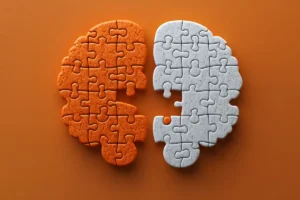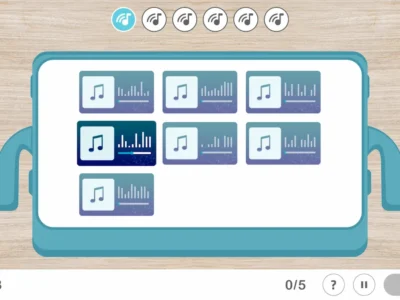Clinical neuropsychologist Lidia García talks to us about embodied memory, how the influence of body posture affects Autobiographical Memory.
Within cognitive science, the idea of embodied cognition is often discussed; a concept referring to the view that bodily states can modify mental states [1]. As we saw in a previous article, it has been observed that body posture can influence, at least transiently, both our subjective sense of control or power, our physiological pattern at the hormonal level, and also our behavior [2].
This is a finding that supports the embodied cognition hypothesis by showing effects of short-term postural change, but what about the long term? Could body posture influence a cognitive system such as Autobiographical Memory?
Can body posture influence Autobiographical Memory?
Researcher Katinka Dijkstra and her research group at Florida State University wanted to test whether Autobiographical Memory could be to some extent embodied or influenced by body posture[3].
To do this they carried out a study [3] in which participants were asked to recall a specific past experience while maintaining a particular posture.
Specifically, when deciding which past experiences participants would be asked to recall, the researchers chose six structured everyday situations that are typically associated with characteristic body postures and that participants were likely to have experienced. Thus, they were asked to remember a time when…
- … they went to the dentist,
- …they played a specific sport
- …they opened the door for a visitor
- …they went to a concert and applauded
- …they waved to someone
- …they placed their hand over their heart
Thus, participants were first positioned in a particular body posture and while maintaining that posture, they were asked for a memory that could be congruent or incongruent with the posture they were in (for example, in the congruent condition, asking them to recline in a reclining chair and to recall a time they went to the dentist; and in the incongruent condition, asking them to stand with their hands on their hips and recall a time they went to the dentist).
So that participants would not guess the aim of the research and also to make later recall more difficult, they included two filler memories: they asked them to recall an event that happened yesterday and an imaginary (invented) event.
Each participant was asked for three of the experimental memories in the congruent condition and three in the incongruent condition (the filler memories were always recalled in the same neutral position with no specific meaning).
The order of both the memories and the congruent vs. incongruent condition was randomized to avoid possible order effects, and the sessions were recorded in audio and video to measure the time it took participants to begin their verbal recall response.
Additionally, two weeks later they were unexpectedly asked which memories they had talked about in the experiment, which constituted a delayed free recall task.
The researchers observed, on one hand, that memories in the congruent situation had been faster than in the incongruent situation, as response times were significantly shorter when the posture matched that of the memory than when it did not. On the other hand, they also found that the proportion of memories retrieved at two weeks was significantly higher for congruent memories, with many fewer incongruent memories retrieved proportionally.
With these results the researchers concluded that the congruence between the experiment’s body posture and that of the original experience had facilitated both access and long-term retention of autobiographical memories, and that this constituted evidence of long-term embodied cognition.

Subscribe
to our
Newsletter
Implications for clinical practice
As we said in a previous post, insofar as body posture appears to be a factor that can modulate cognitive performance [3,4], it is also a relevant aspect to consider when we want to make an accurate assessment of patients’ actual cognitive state and also when we want to maximize the processes of cognitive rehabilitation.
Findings like these can be very useful to us for improving the assessment and stimulation conditions for patients in neuropsychology clinics.
References
- Wilson & Golonka (2013). Embodied cognition is not what you think it is. Frontiers in Psychology, 4, 58. https://doi.org/10.3389/fpsyg.2013.00058
- Carney, D.R., Cuddy, A.J.C. and Yap, A.J. (2010). Power posing: brief nonverbal displays affect neuroendocrine levels and risk tolerance. Psychological Science, 21(10) 1363-1368.
- Dijkstra, K., Kaschak, M.P. & Zwaan, R.A. (2007). Body posture facilitates retrieval of autobiographical memories. Cognition, 102, 139-149.
- Smith, P.K., Jostmann, N.B., Galinsky, A.D., & van Dijk, W.W. (2008). Lacking power impairs executive functions. Psychological Science, 19, 441–447.
If you liked this post about embodied memory, you may be interested in these NeuronUP articles.
“This article has been translated. Link to the original article in Spanish:”
Memoria corporizada: Influencia de la postura corporal en la memoria autobiográfica







 Rare Diseases in Data: Characteristics and Diagnosis
Rare Diseases in Data: Characteristics and Diagnosis
Leave a Reply